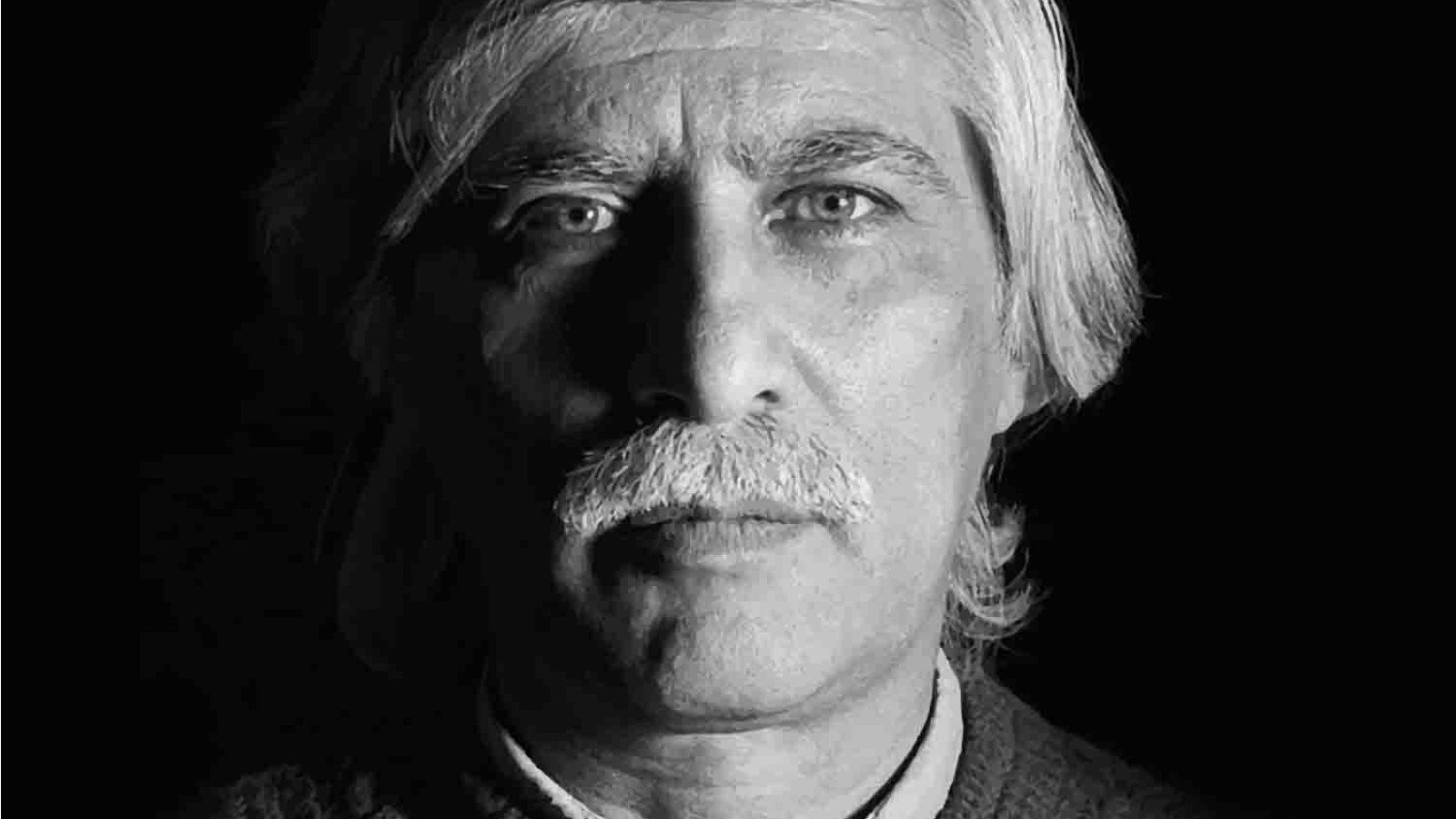
Bahram Beyzai is an Iranian researcher, writer and director. He was born on the fifth of Dey, 1317 SH, in Tehran. His father was a poet from Aran, a city in Isfahan. Bahram Beyzai used to run away from his school, which he went to from 1334 to 1337 SH, to go to the cinema.
He had many unsuccessful attempts to obtain a filming camera. During his final years at high school he wrote two plays using historical language. After finishing high school, he was accepted in Literature Faculty of University of Tehran. He pursued his interest in Iran cinema with more passion than before. He left education and university for one year and began studying and researching Iranian literature, Shahnameh or The Book of Kings, the culture of the pre-Islamic era, myths, and ethnography. He published texts about cinema in Elm Va Zendegi magazine as early as 1340 SH. He also began writing serious plays from then. He wrote Arousakha (the Dolls) and Ghorub-e Daryaye Gharib in 1341 SH, and Gheseye Mahe Penhan in 1342 SH. He published all three plays like a book named Three Puppet Plays. It was in 1341 SH that he began writing dramas and researching in the field of theater. He is a very prolific writer and artist.
His literary works include plays, screenplays and Barkhani. Barkhani is a kind of not very common drama literature, in which basically it is not the character who speaks the dialogues, but the narrator always narrates the story in a loud voice. Even though most of his works have not been produced as films or theater plays, but they have been published as books. Amongst them are Pahlevan Akbar Mimirad (Akbar the Champion Dies), Hashtomin Safar-e Sandbad (Sinbad’s Eighth Journey), Donyaye Matbuati-e Aghaye Asrari Dar Hozur-e Bad, Gomshodegan (The Lost), and many more. A diverse range of subjects have been addressed in the works of Bahram Beyzai, as he never limited their subject. But nationalism, social issues and problems of women have been the themes that can be seen more than the others. In collaboration with nine other writers, Beyzai founded the Iran Writers Club in 1347 SH, and was invited by the Fine Arts Faculty as a teacher in 1348 SH. He became a full-time professor of this faculty in 1352 SH in the performing arts department and was dismissed from this position in 1360 SH.
In the second half of 1389 SH he moved to U.S. with his family and began teaching and researching in Stanford University. Some of his last films are Vaghti Hame Khabim (When We Are All Asleep), Ghali-e Sokhangu (The Talking Carpet) and Sag Koshi (Dog Killing).